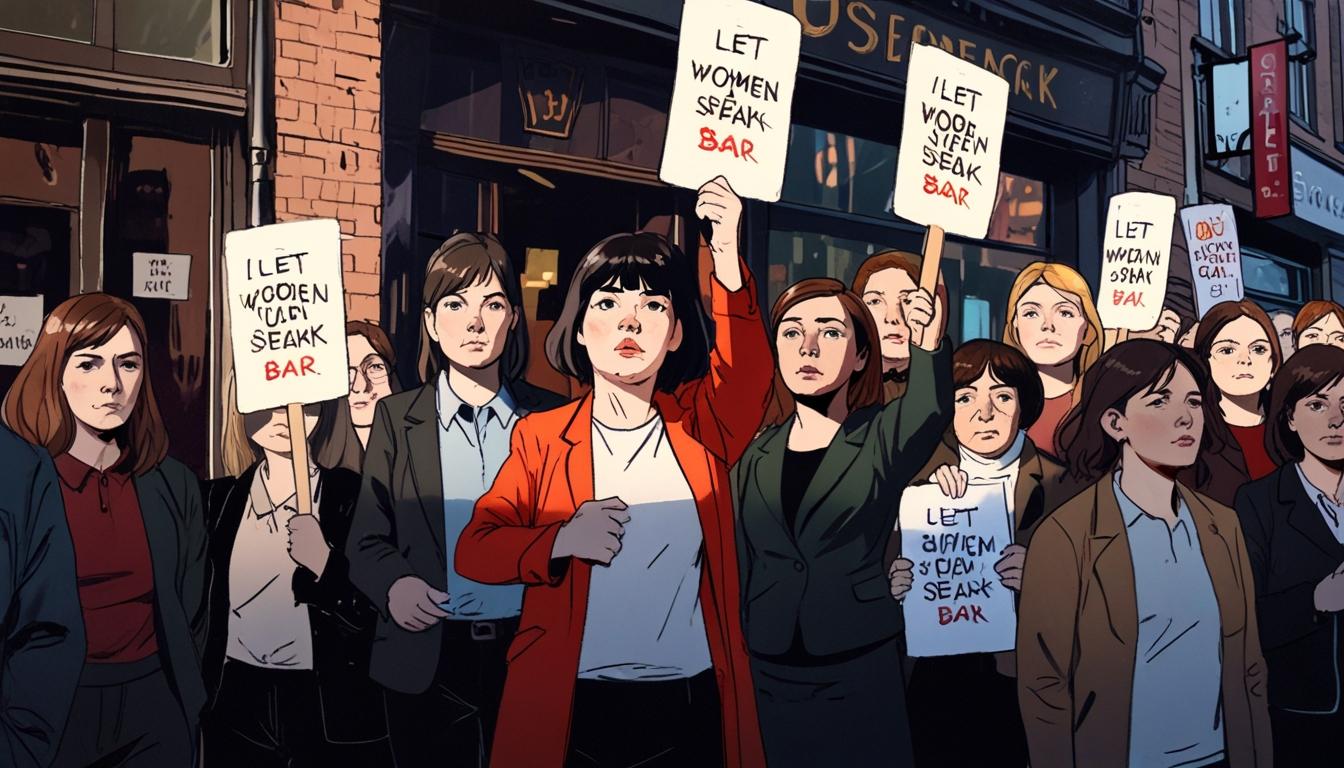Legal Action Over Alleged Discrimination at Belfast Bar
Graham Linehan, the comedy writer acclaimed for creating iconic British sitcoms such as Father Ted and The IT Crowd, has shifted into a controversial spotlight due to his outspoken views on transgender issues. The Dublin-born writer has emerged as a prominent critic of gender self-identification within recent years, claiming that his views have resulted in significant personal and professional repercussions, including a ban from Twitter for "hateful conduct". Despite his claims of bias against him, Linehan’s public engagement on these topics has placed him at the centre of ongoing debates about free speech and the rights of transgender individuals.
The most recent legal episode in this saga unfolded when Linehan, alongside 23 other women’s rights activists, filed civil action against Robinson's Bar in Belfast. This litigation, described as the first of its kind in Northern Ireland, stems from an incident following a “Let Women Speak” rally in April 2023, led by activist Kellie-Jay Keen. According to the plaintiffs, they were unlawfully refused service at the bar due to their “gender-critical” beliefs, a term that reflects their stance on biological sex and women-only spaces.
The incidents at Robinson's reportedly escalated into a “hostile and febrile” environment, as described in court filings. The group alleges that they were denied service after spending some time in the venue, and they are seeking damages — including a notable claim for £20,000 for personal injury, due to one activist alleging that he was assaulted by staff, leaving him with a permanent scar. Other members of the group, who claim to have witnessed the alleged assault, are seeking additional compensation as secondary victims.
Robinson's Bar and its owner, Wine Inns Ltd, have categorically denied the allegations, asserting that no discrimination or ill-treatment occurred and claiming that the actions taken by their staff were a result of apprehension stemming from the behaviour exhibited by the plaintiffs during their visit. As these legal proceedings unfold, public and media attention has begun to hone in on the implications of such case law, particularly regarding the intersection of gender identity debates and free expression.
Following a significant recent ruling by the UK Supreme Court, in which it was established that the definition of a woman under equalities law pertains to biological sex, the plaintiffs feel bolstered in their argument. Solicitor Simon Chambers, representing the group, articulated that this ruling has provided a form of legal endorsement to their views, suggesting that it challenges the rationale behind their exclusion from the pub. He stated that the judgment clearly shows the reality that "sex is immutable," framing their beliefs as not only legitimate but also legally protected.
The unfolding case represents a critical juncture in Northern Irish law and public discourse, reflecting deeper societal divides over gender rights and beliefs. As more court hearings are set to occur, discussions surrounding the legal acknowledgment of gender-critical beliefs and their place within the framework of equalities law will likely intensify.
For now, the case against Robinson's Bar continues to develop, with both sides preparing for further legal arguments that will shape not only the immediate outcome for Linehan and his fellow plaintiffs but potentially broader implications regarding the rights of individuals to express their beliefs without facing discrimination.
Reference Map:
- Paragraph 1 – [1], [4]
- Paragraph 2 – [1], [5]
- Paragraph 3 – [2], [3]
- Paragraph 4 – [4], [6]
- Paragraph 5 – [7]
Source: Noah Wire Services
